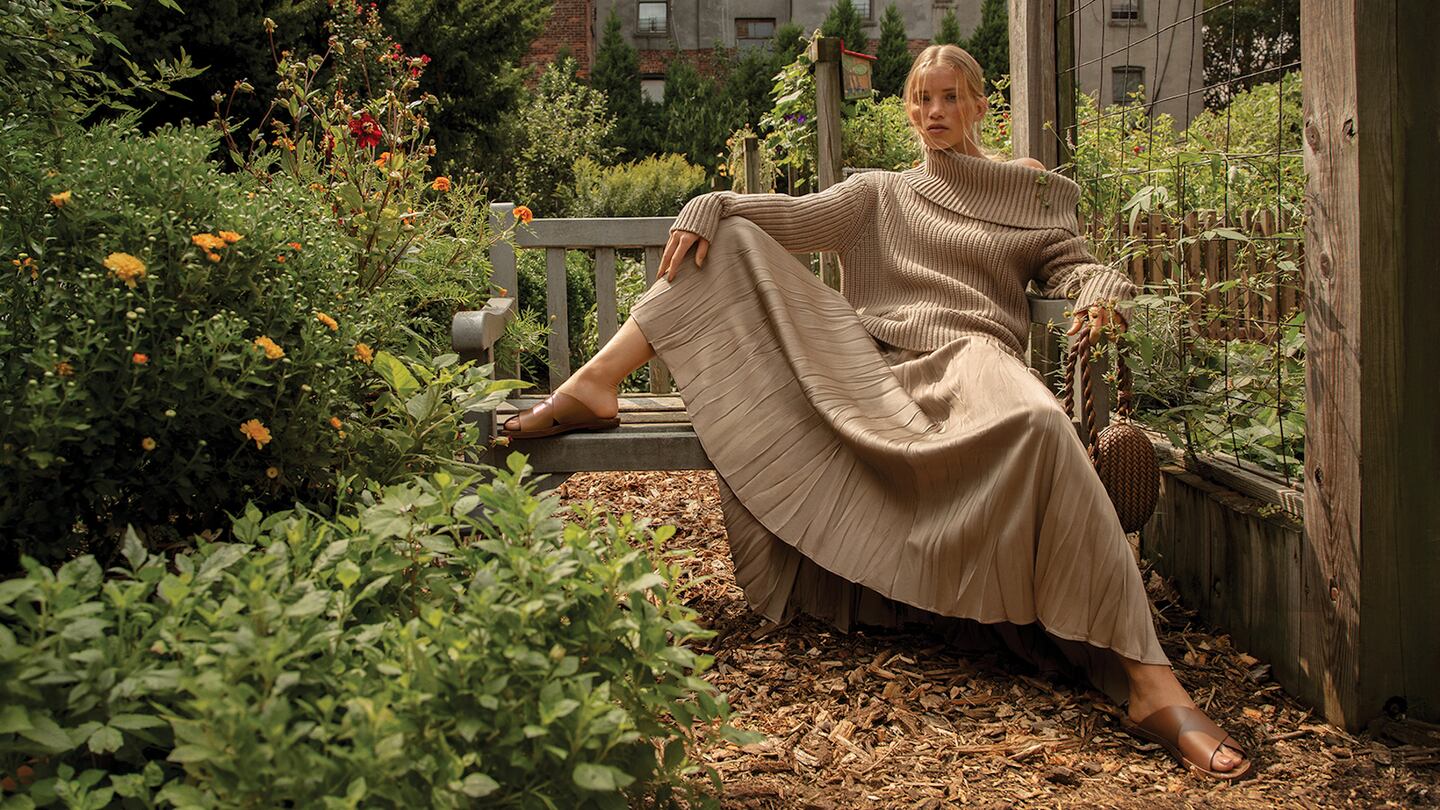
The Business of Fashion
Agenda-setting intelligence, analysis and advice for the global fashion community.

Agenda-setting intelligence, analysis and advice for the global fashion community.

THE SHRINKING CENTRE
Michael Kors will be getting back to the designer’s roots with its latest collection launch, a New York theatre-themed digital event that doubles as the brand’s 40th anniversary celebration. It’s a time of transition for Kors, and the American accessible luxury category as a whole. The pricey but generally not too pricey brand, along with similarly positioned rivals like Coach and Kate Spade, is competing for a shrinking market, as wealthy consumers upgrade to luxury labels and the masses look for bargains. Piper Sandler’s latest survey of American teens illustrates what Michael Kors is up against: in 2018, 62 percent of respondents named Kors, Coach or Kate Spade as their favourite handbag brand, while 17 percent named a European luxury label. In the latest survey, the gap was much narrower, at 43 percent and 37 percent, respectively. Meanwhile, Shein, an online fast fashion retailer, cracked the survey’s list of most popular handbag brands for the first time.
It’s not all bad news. Kors might be grabbing for a smaller slice of the pie, but the pie itself is bound to get bigger as lockdowns lift and consumers seek out new heels and handbags. The long-awaited new silhouette — goodbye skinny jeans — appears to be gaining broader traction, a prime opportunity for brands that bridge the divide between runway fashion and everyday dressing. New leadership may be on the way, with former Coach head Joshua Schulman rumoured to be in line to head Capri, the parent of Kors, Versace and Jimmy Choo.
The Bottom Line: As Coach’s recent success with “Coach TV” shows, it is still possible for accessible luxury brands to win consumers’ attention. The greater challenge is convincing those customers to buy their bags at full-price boutiques instead of outlet malls and off-price stores.
ADVERTISEMENT
DOES GUCCI NEED FIXING?
Where LVMH, Prada and other luxury giants seem to have the post-pandemic wind at their backs, Gucci risks being left out of the party. It partly comes down to timing: Gucci dominated the end of the last decade, but momentum was starting to flag by early 2020. The pandemic wasn’t the best time for creative director Alessandro Michele to debut a new direction for the brand; a collection launched via a series of short films drew plenty of attention, but sales dipped in the fourth quarter. The temporary halt to global tourism took a big bite.
To be sure, Gucci still ranks second in Brand Finance’s annual ranking of the world’s most popular brands, behind Nike. And Michele is an expert at using that clout to draw attention to his creations; last week’s show, with its Balenciaga “hack,” was an online sensation the likes of which few other brands can match.
The Bottom Line: Gucci’s latest collection appropriately had a “rebirth” theme. Kering, which relies on Gucci for a majority of its revenue and profits, is no doubt hoping Michele’s latest stunt proves as effective at drawing consumers to stores as it did at drawing online views.
EXPOSING FASHION’S DARK SIDE
Each April, Fashion Revolution Week unleashes a flurry of hashtags, petitions and events targeting the industry’s worst practices. But in truth, criticising fashion’s bad actors has become a year-round affair. In some ways, activists have momentum on their side. Consumers are better informed about the darker side of the fashion industry, and in surveys say brands’ behaviour affects their purchasing decisions (spending data is less conclusive on this front). At the same time, the disruption and economic devastation of the pandemic has created new challenges, particularly in the area of worker rights. When brands talked about “rationalising inventory” and “slimming SKUs” this past year, that often meant cutting ties with suppliers in developing countries, who in turn passed along the economic pain to their workers. Eliminating Xinjiang cotton linked to forced labour is also proving tricky, as brands must choose between alienating Chinese customers by boycotting the material, or Western consumers by failing to do so.
The Bottom Line: Activists have consumers’ attention, and many brands have devoted significant resources to addressing their worst excesses. But progress is uneven, and the industry is a long way from declaring victory on most fronts.
The Week Ahead wants to hear from you! Send tips, suggestions, complaints and compliments to brian.baskin@businessoffashion.com.
The group’s flagship Prada brand grew more slowly but remained resilient in the face of a sector-wide slowdown, with retail sales up 7 percent.
The guidance was issued as the French group released first-quarter sales that confirmed forecasts for a slowdown. Weak demand in China and poor performance at flagship Gucci are weighing on the group.
Consumers face less, not more, choice if handbag brands can't scale up to compete with LVMH, argues Andrea Felsted.
As the French luxury group attempts to get back on track, investors, former insiders and industry observers say the group needs a far more drastic overhaul than it has planned, reports Bloomberg.